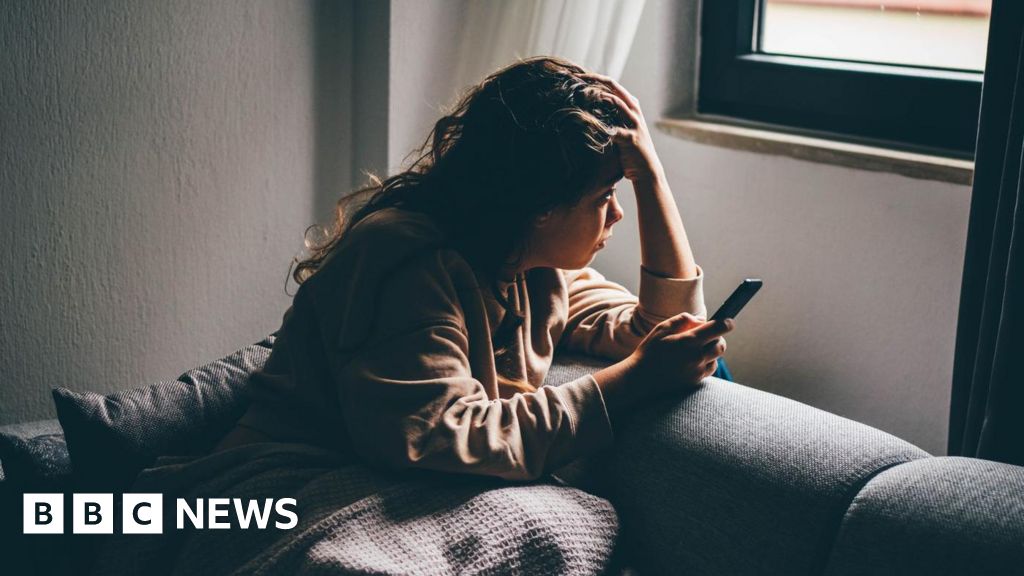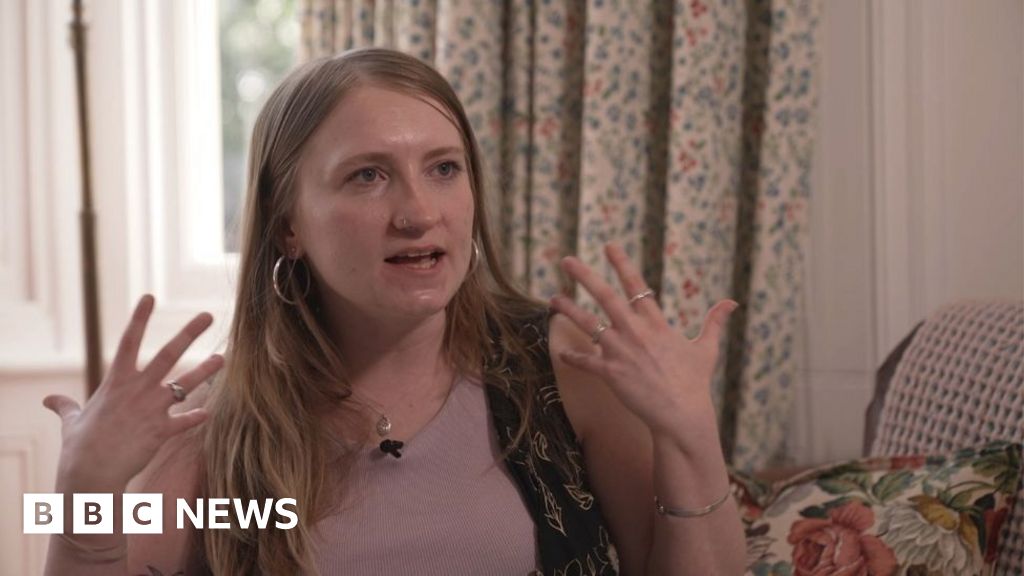ARTICLE AD BOX
By Annabel Rackham
BBC News
Image source, Getty Images
Image caption,Restaurant meals are sometimes used as part of recovery plans for people with eating disorders
Going out for a meal is meant to be an enjoyable experience, something you do as a treat or for a special occasion.
But with calories on menus now compulsory in England, the joy is being taken away for some people with eating disorders.
Isabella, who has recovered from an eating disorder, went to her favourite bakery a few days ago and says seeing calories listed "made me feel like I didn't want to go back".
Restaurants and cafes employing more than 250 people are now required by law to show calorie information, with a similar system being considered for Scotland.
The government says it has been brought in to tackle obesity by helping people to make healthier choices.
Some groups have been really pleased with the change, with diabetes campaigners calling it an important step in preventing people from developing type 2, which is diet-related.
But Isabella says going out for meals was an important step in helping her recover from anorexia, and this change could cause setbacks.
Image source, Isabella Clark
Image caption,Isabella has got into running as part of her recovery from an eating disorder
"When I was in a recovery unit, as part of the programme to get back to sort of a normal life, you had to go out for restaurant meals," she says.
"It was a way to gauge how you'd cope in the real world away from the support of staff, and for me it was a really big moment to be with my family."
She says that if calories had been listed, her natural response would have been to choose the lowest calorie option on the menu rather than what looked most appealing, which goes against what is taught on recovery programmes.
Prof Sandeep Ranote, a consultant paediatric psychiatrist specialising in eating disorders, says "part of recovery planning is about reintroducing social activities, being able to go on holiday and visit restaurants".
She says: "Some of what we know from those with lived experience [of eating disorders] is that seeing calories printed on menus could be a huge trigger to their anxiety."
It's difficult to predict how many people in the UK have an eating disorder, but estimates are between 1.25 and 3.4 million.
Prof Ranote adds that calories on menus can be incredibly triggering for people with both anorexia and bulimia, who may search for lower calorie foods, but on the flipside could lead to people with binge eating disorder finding higher calorie items "to trigger guilt and shame".
She says calorie counting is a symptom seen in many of those suffering from eating disorders, and putting calories on menus could affect the work done by mental health services.
"It could hinder some of the work we do in the prevention of eating disorders, because the focus becomes about numbers. Calories don't teach good nutrition or what's a good balanced diet, or a healthy relationship with food."
What is an eating disorder?
- It is a mental health condition where you use control of food to cope with feelings and other situations
- Unhealthy eating behaviours may include eating too much or too little and worrying about your weight
- The three most common types are anorexia nervosa, bulimia and binge eating disorder
- Anorexia nervosa is trying to control your weight by not eating enough food, exercising too much or doing both
- Bulimia is losing control over how much you eat and taking drastic action to not put on weight
- Binge eating disorder is eating large portions of food until you feel uncomfortably full
The average age at which someone develops an eating disorder is between 16 and 19, according to eating disorder charity Beat, and Isabella is concerned by what could happen if young people are presented with calorie information when they go for meals.
"I think for children to be introduced to menus with calories on, it could really affect their mental health," she says.
Image source, Getty Images
Image caption,The government says calories on menus will help people to make healthier choices
"At that age, you might be starting to go out with your friends for meals after school and it could really create negative associations with food," Isabella adds.
A Beat spokesperson said: "We know from the people we support that including calories on menus can contribute to harmful thoughts and behaviours worsening.
"It can create a fixation on restricting calories for those with anorexia or bulimia, or increase feelings of guilt for those with binge eating disorder."
A possible solution that has been discussed on social media is restaurants offering two menus - one with calories and one without, but currently this is not required under legislation.
The Department for Health and Social Care responded to this proposed solution by saying: "The regulations allow businesses to provide menus without calorie information at the request of the customer."
And it added it would "continue to evaluate the impact of out of home calorie labelling across the population, including on people with an eating disorder".
The BBC asked UK Hospitality for comment on how its businesses feel about offering menus without calories.
However, Isabella says she's not sure two menus are really the answer.
"Is it going to stop people with eating disorders from asking for the menu with calories on? Probably not because I think there's a horrible part of your mind that says you've got to know, so you choose the lowest calorie option."
Information and support for those affected by eating disorders or mental health issues is available via the BBC's Action Line.

 3 years ago
63
3 years ago
63








 English (US) ·
English (US) ·